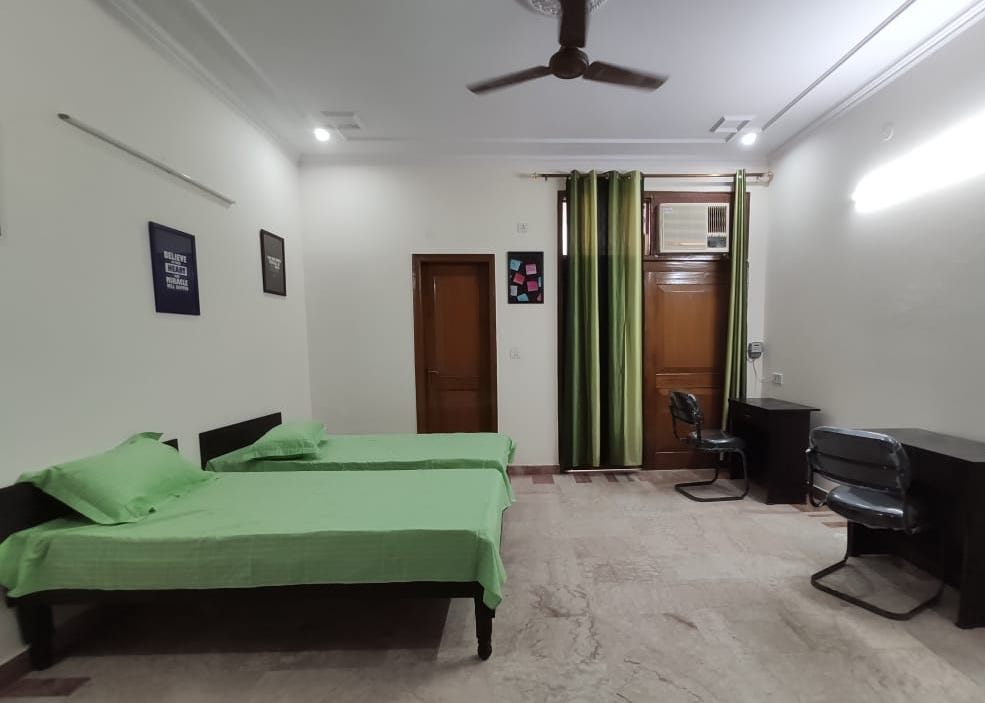These Healthy Money Habits Will Help You Save a Fortune in Delhi

You came to Delhi with your dreams and your wallet stacked high, hoping the city would be a gateway to success and prosperity. But you’re in your twenties, managing your finances for the first time, and you just can’t keep track of how quickly your budget is running out. Between paying your rent for the PG in Karol Bagh, buying groceries, managing entertainment and travel costs, you’re struggling to save anything at all. If this sounds familiar, don’t worry, we’ve all been there.
Learning how to manage money is always difficult, and usually involves quite a bit of trial and error. But getting some healthy financial habits in place when you’re young can sort you out for life. And whether you’re on the verge of starting college, about to graduate or getting settled in your first job, it’s never too early or too late to start. That’s why we’ve got a list of tips and practices that you could try to give yourself a helping hand.
Open a separate savings account
We know they didn’t teach you this in school, but it’s time to get familiar with your bank and open a savings account for yourself. This is different from the salary account that you have already or the account that you use to spend routinely. This should be an account that you’re not going to dip into, that will accrue interest as you keep saving. Yes, it won’t be a very high amount of interest, but it’s the habit of saving that you’re trying to develop. If you think having an account that you won’t make withdrawals from is too difficult, you could also try creating a recurring deposit so that you can consistently save a certain amount each month and earn higher levels of interest.
Plan your expenses
If you think about it, it’s not the expected expenses like rent or travel that are eating into your budget. It’s the impulse buys. Everytime you decide to order a takeaway instead of cooking for yourself or place Amazon orders you can’t help but make, these costs add up. And often these impulsive purchases can lead to you overspending or running out of money for essentials. That’s why it’s important to plan your expenditure every month. Set aside certain amounts for rent, food, transportation etc. and then allocate the rest towards entertainment or personal luxuries. Try and set realistic limits for these categories to restrict how often you click the ‘bye now’ buttons.
Save first, pay second
Another handy way for you to maximise your savings is by paying yourself first. What we mean by this is that before you start setting aside expense amounts from your salary, you need to decide what percentage you’re planning to save. You can do this by setting up a direct deposit from your salary account into your savings account at the start of the month or even making smaller deposits yourself manually every week. If you’ve cooked at home instead of ordering out for a week, deposit the amount you would have spent on deliveries into your savings.
Go generic where you can
We’re constantly surrounded by advertising and competing brands trying to get our attention. But have you ever thought about how often you’re falling prey to conspicuous consumption due to this? Without even realising it, you could be going for more expensive branded items instead of cheaper generic ones. And we’re not talking about your favourite pair of jeans, or the brand of coffee you can’t wake up without. We’re talking about the type of mustard you have at the back of your fridge or where you bought socks from. Selectively substituting brands for cheaper alternatives when it comes to these regular use items can actually cut down a significant percentage of your spending in a totally painless way. So, go ahead and give this a try.
Make your progress visible
When you’re trying to fix your finance habits, you might think it’s an endless journey with no destination. It’s easy to feel disheartened or restricted if you’re staying home in your PG in Delhi while your friends go out and splurge. And that demotivation often leads to retail therapy. Break out of that vicious cycle and feel proud of your healthy money habits. The easiest way to do that is to make your progress visible. Download a finance tracker that shows you how you’re sticking to your budget. Make a chart of your savings so you can keep track of your growing financial stability. Create a number goal to work towards and have as an incentive to save. Whichever method you choose, being able to visualise your progress will reinforce your behaviour and make you a lot happier too.
These money habits will make a real difference to your bank balance, and help you improve your spending patterns. You’ll be on track towards making good financial decisions and having a sustainable lifestyle. So, be conscious of what you’re spending and you’ll be on top of your game. After all, this is your chance to get a head start on the rest of your life.


0 comments